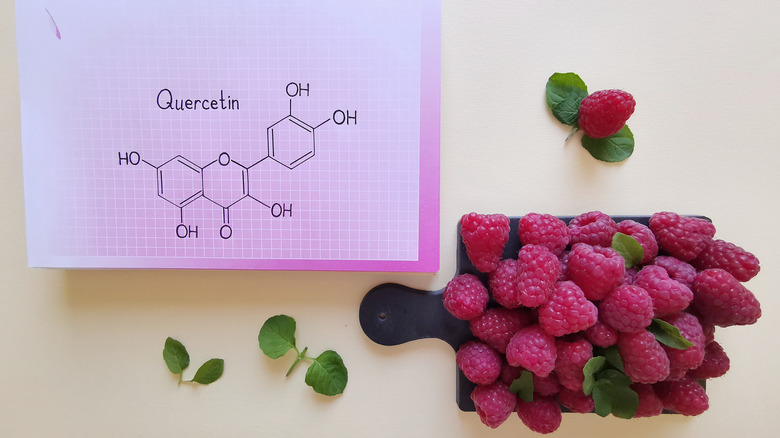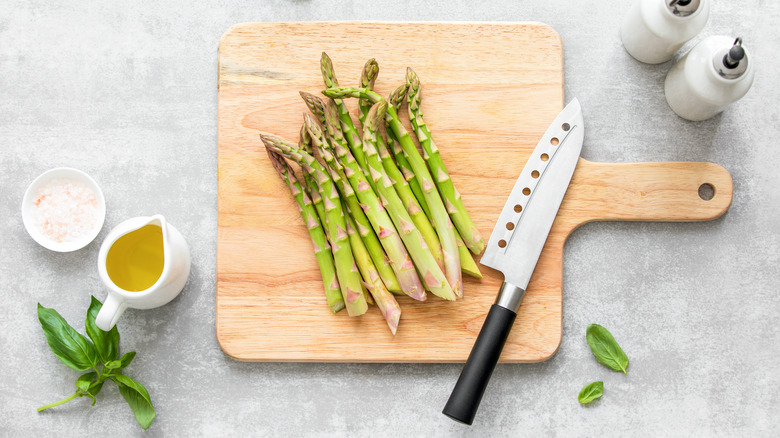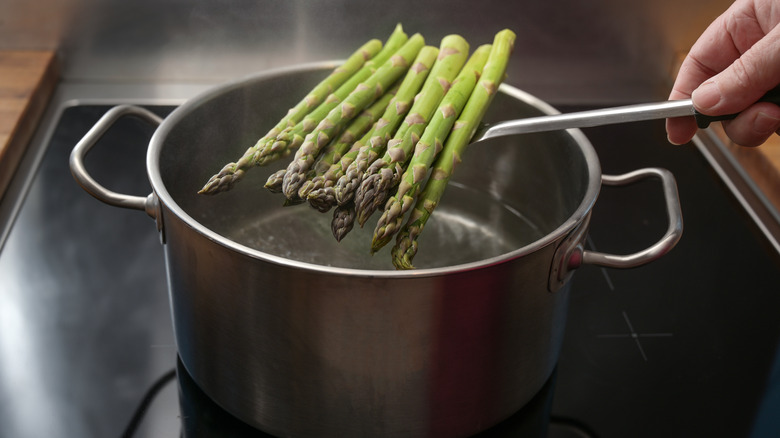The Unexpected Food That Can Help You Prevent Allergy Symptoms
Quercetin is a naturally occurring pigment found in many vividly colored fruits and vegetables, such as grapes, berries, cherries, citrus fruits, broccoli, and onions, according to Pharmacognosy Review.
The antioxidant is one of the richest flavonoid molecules (per Cell & Bioscience). It's been shown to have myriad medicinal benefits, such as improving inflammation, blood pressure, blood sugar, and cardiovascular health. It can neutralize or kill off unstable atoms like free radicals, which damage DNA and destroy cells throughout the body. It's also been recognized for preventing aging, neurodegenerative diseases, and serious illnesses like cancer.
A 2020 review in Natural Product Communications indicates that quercetin is even more powerful when it works synergistically with vitamin C – which is also abundant in most fruits and vegetables. Together, the compounds exert strong antiviral activities that can help boost your immune system and ward off infections and diseases.
There's also a growing body of evidence to show that quercetin found in foods can prevent allergy symptoms and diseases like allergic rhinitis (hayfever) and asthma, says Allergy, Asthma & Clinical Immunology. It does this by stopping immune cells from triggering histamine in the body. Histamine is the chemical responsible for the irritating symptoms that come with allergies like an itchy and runny nose (via Frontiers in Immunology). Your immune system releases histamine to flush out the allergens that enter your body, such as pollen or dust, which are mistakenly perceived as harmful.
Why asparagus is a good food for allergy prevention
Asparagus is an underrated star in the vegetable world. The tasty power food can be enjoyed all year round and contains an abundance of different nutrients (via Acta Scientiarum Polonorum, Technologia Alimentaria). Depending on the color and variety, asparagus is packed full of bioactive compounds, such as glutathione, phytosterols, fructans, and vitamins C and E. It's also a rich source of quercetin — the unique ingredient that gives it its health-boosting properties — which is a great companion to vitamin C and may boost skin vitality and aid wound healing.
Asparagus is also a great addition to a pregnancy diet because of its high folic acid content, which helps prevent birth defects, according to The Journal of Nutrition.
As well as enhancing immunity and contributing to a healthy heart, asparagus can act as a natural antihistamine, says a 2016 study published in Molecules. Its antihistamine effects are largely attributed to quercetin, which is particularly high in dark leafy greens like asparagus, romaine lettuce, and red leaf lettuce (via Nutrients).
Best way to eat asparagus to maintain quercetin content
The color and quality of your food seem to be determining factors for quercetin concentration (via Molecules). Researchers have found that quercetin is notably higher in organically grown vegetables or fruit than in chemically grown ones (via Nutrients).
Cooking can have a big impact on quercetin levels, says a 2015 report in The Enzymes. Foods tend to lose quercetin when boiled or fried, with boiling being the most destructive heating method. Storing your food for long periods of time can also make a difference, but this ultimately depends on the food and storage time. Onions have been found to lose quercetin by up to 33% when stored for 12 days, whereas strawberries appear to increase in quercetin by 32% when stored for nine months at minus 20 degrees C (minus 4 degrees F).
Asparagus is a surprisingly versatile superfood that can be eaten both cooked and raw. But due to its tough texture, the vegetable tends to be more enjoyable when lightly cooked, making it slightly more tender. Asparagus retains a fairly high level of quercetin even when it's boiled, reports a 2015 study in Nutrients. Some researchers have insisted that cooking may help boost the antioxidant capacities of both fresh and stored asparagus (via International Journal of Molecular Sciences).



